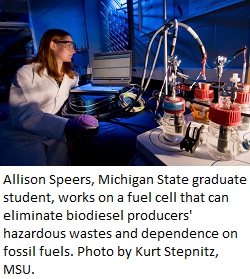 Summer driving season kicked off this past weekend, and the American Coalition for Ethanol (ACE) took the opportunity to remind drivers that most vehicles can be filling up with the higher 15 percent blend of ethanol, E15. ACE Senior Vice President Ron Lamberty says it could save them some money at the pump.
Summer driving season kicked off this past weekend, and the American Coalition for Ethanol (ACE) took the opportunity to remind drivers that most vehicles can be filling up with the higher 15 percent blend of ethanol, E15. ACE Senior Vice President Ron Lamberty says it could save them some money at the pump.
“Once the federal government gave the approval for E15 blends to be sold in retail stations, automakers started building cars designed and warrantied for E15 fuel. For the last two years nearly every new vehicle sold in the US is ‘‘E15 compatible,’’ under even the strictest definition of that term. Along with flex-fuel vehicles and Ford’s earlier switch to E15 according to sales data, about 50 million vehicles on the road today have warranties that include E15. And that number will grow by almost 15 million every year. While ACE continues to encourage drivers of cars and light trucks built in model year 2001 and newer – the vehicles EPA tested safe for E15 use – to try E15, no one can argue about the safety of E15 in this group of newer vehicles.”
ACE also pointed out that more states are passing laws that should lead to more stations offering E15 blends. The group also criticized AAA for being “a very effective pawn in Big Oil’s campaign to smear E15 and maintain the fuel monopoly that has doubled American drivers’ fuel expenditures over the past five years.” Lamberty called on AAA to step up and advocate on behalf of drivers and call for the higher blend.











